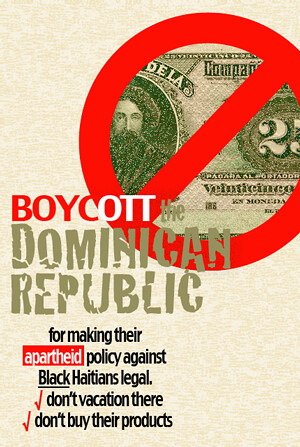A global change agenda that gives voice to the poor and dispossessed continues to be spearheaded by Hugo Chavez of Venezuela.
You would not be able to gather that if you watch the Frontline documentary about Hugo Chavez called ""The Hugo Chavez Show" which aired on PBS this week. It claimed to present "An illuminating inside view of the mercurial Venezuelan president, his rise to power, and the new kind of revolution that he seems to be inventing -- on television."
I was surprised by some of the information. Like about the oil magnate that came to the rescue of the Chavez government during a paralyzing strike staged by workers on December 2, 2003 at the national oil company, Petroleos de Venezuela (PDVSA). This so-called "worker's strike" was actually called by the opposition after the Chavez government called for an increase in the government's share from oil profits in order to fund social programs. Venezuela is the world's fifth largest oil producer and ranks among the top four U.S. oil suppliers. The strike cut total oil imports to the U.S. by 14%.
I was not surprised by the criticism of Chavez's programs or the adversarial tone of the piece, which held out little hope for the success of the Bolivarian Revolution movement. This piece was the usual U.S. mainstream media propaganda. The role of the U.S. in the attempted coup by the Venezuelan opposition in 2002 for instance, is just a short aside that avoided mentioning the extent of U.S. involvement. The piece implies that Chavez is "obsessed" with Bush, in that he falsely attributes an imperialistic and interventionist agenda to the U.S. However, the U.S. Secretary of State, Condoleeza Rice has made many statements branding Hugo Chavez a threat to hemispheric stability and implied that he must be stopped. Just this September, the U.S. ambassador was expelled by the Venezuelan government for his role in an attempted coup. No mention of this was made on the program.
One positive is that the piece acknowledges that Hugo Chavez has been a voice for the poor indigenous people of South America, that he has put their needs on the agenda whenever there is a legitimate discussion of the political priorities of the Latin American nations. This is a significant and very important change.
Hugo Chavez is well on his way to affecting real change in South America because he has eschewed the mindset that allows extreme poverty to exist in the same space as extreme wealth. Leaders of Venezuela, Argentina, Bolivia, Brazil, Ecuador, Paraguay and Uruguay officially launched the South American Bank in Buenos Aires in December 2007 to challenge the world banking system of debt and dependency which is controlled by capitalist bureaucrats at the IMF and the World Bank. The global economic crisis resulting from the U.S. economic collapse serves to confirm the need for such an alliance.
Hugo Chavez's ideals are a positive change for the poor people of Venezuela and the world. They are in the majority. The rich who enjoy most of the world's resources compromise a very small minority. The documentary's narrow exploration does not reflect the Herculean proportions of his struggle, nor credit him primarily for the global seismic shift left that has occurred in the political, social and economic life of Latin America and the world.
"The Hugo Chavez Show" producer Ofra Bikel should know that even though the revolution is televised, it is also bringing about positive change to Latin America and the world.
Showing posts with label bolivarian revolution. Show all posts
Showing posts with label bolivarian revolution. Show all posts
Thursday, November 27, 2008
Subscribe to:
Posts (Atom)




